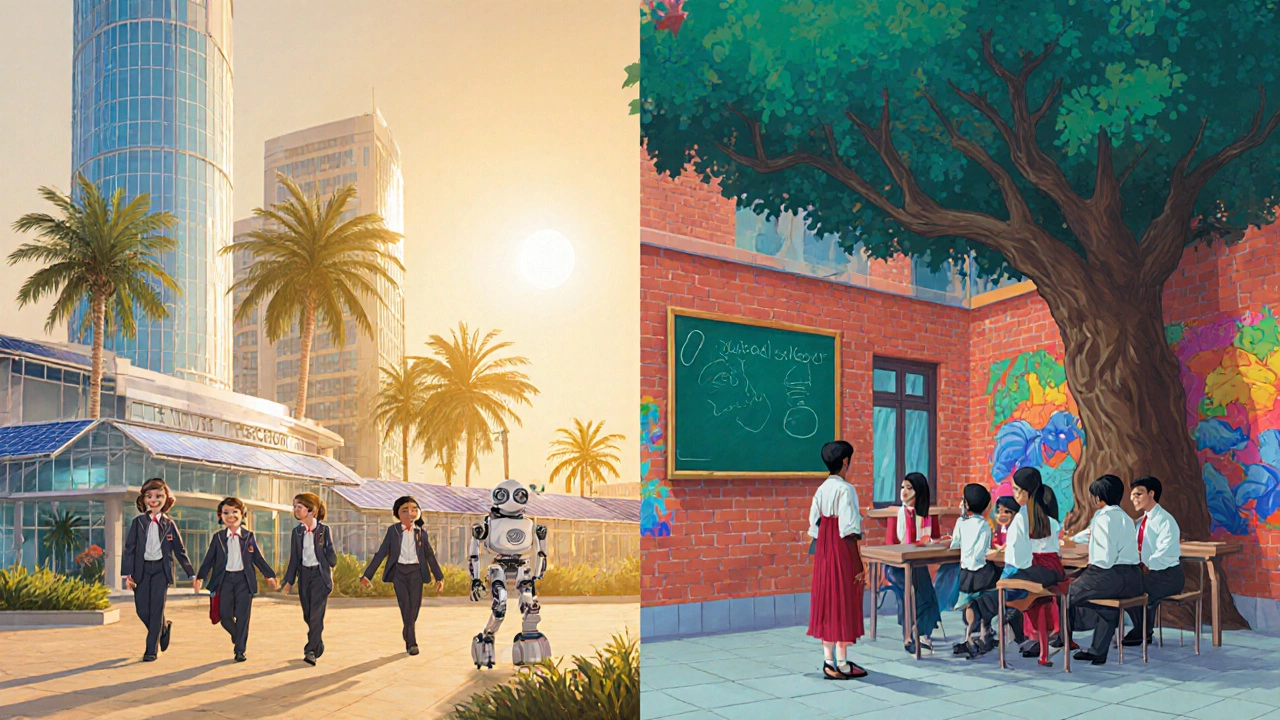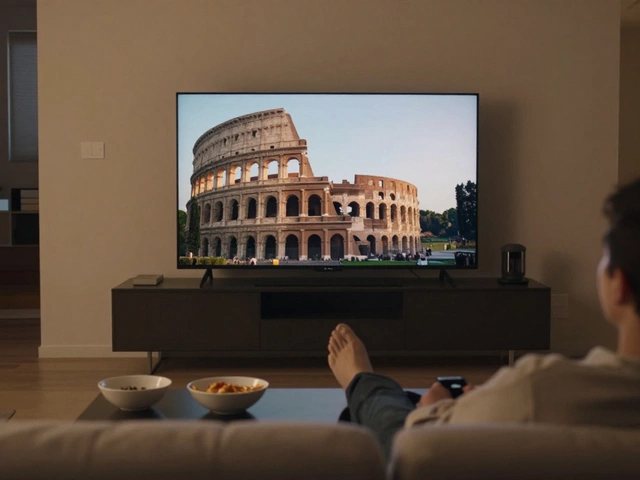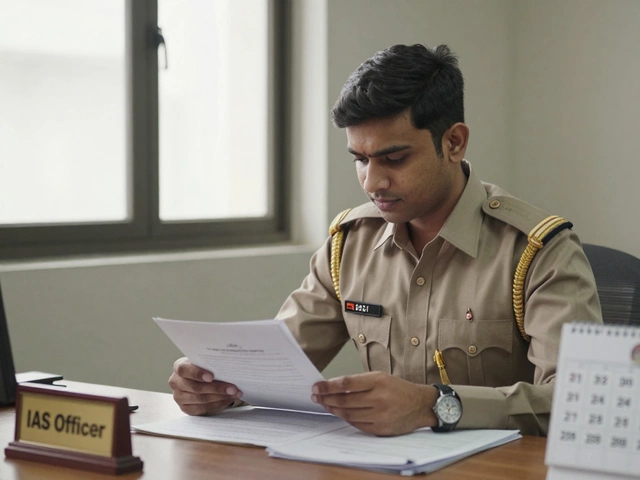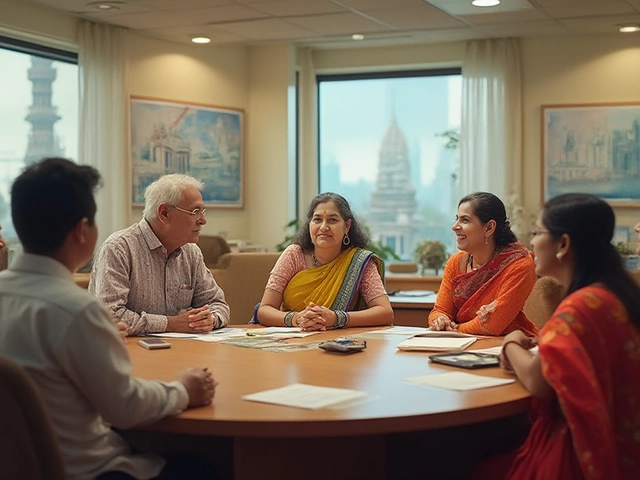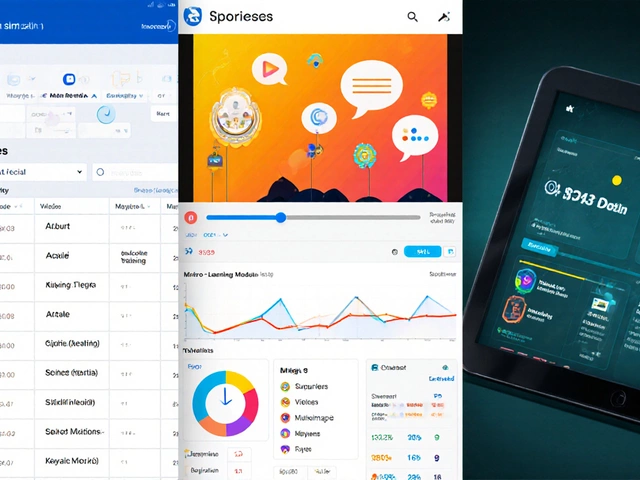Dubai vs India Education Comparison Tool
Dubai Education System
- Curriculum: IB, British, American, CBSE/ICSE
- Language: English (often Arabic as second language)
- Facilities: Smart classrooms, robotics labs, sports complexes
- Cost: AED 30,000–70,000/year
- Student Ratio: ~1:15
India Education System
- Curriculum: CBSE, ICSE, IB, Cambridge
- Language: English (CBSE/ICSE) or regional language
- Facilities: Varies; public schools often lack resources
- Cost: ₹0–10 lakhs/year
- Student Ratio: 1:40 average in public schools
Compare Key Factors
Curriculum Options: Dubai offers IB, British, American, and CBSE/ICSE. India has CBSE, ICSE, and growing adoption of IB/Cambridge in private schools.
Quick Decision Guide
Choose Based On:
- International Exposure: Dubai offers multicultural campuses and global trips
- Budget Constraints: India provides free public education
- Engineering Aspirations: India's CBSE/ICSE aligns with JEE/NEET
- Western University Prep: Dubai's IB/A-Levels reduce entrance exams
- Family Proximity: India keeps students near extended relatives
When parents or students ask, “Is Dubai education better than India?”, they’re really weighing two very different worlds. One is a fast‑growing hub that invests heavily in international curricula, the other is a massive network serving over 260million learners. This article breaks down the core factors-curriculum, quality, cost, and global recognition-so you can decide which environment fits your goals.
Key Takeaways
- Dubai’s schools often follow international programs (IB, British, US) and offer state‑of‑the‑art facilities.
- India’s system is huge, with strong STEM focus, but quality varies widely between regions and school types.
- Costs in Dubai are substantially higher; Indian public schools are low‑cost but may lack resources.
- Both systems produce high‑achieving graduates; success depends more on the chosen school than the country.
- Consider language, career goals, and family budget when choosing.
Understanding the Dubai Education System
Dubai education system is a blend of public and private institutions overseen by the UAE Ministry of Education. The ministry sets standards for curricula, teacher qualifications, and assessment methods, while private schools have the freedom to adopt foreign programs. The most common tracks are:
- British (GCSE/A‑Levels)
- American (AP, SAT)
- International Baccalaureate (IB)
- Indian boards (CBSE, ICSE) for expatriate families
Facilities are a hallmark: smart classrooms, robotics labs, and sports complexes are standard in many private schools. Student‑teacher ratios often sit around 1:15, and many schools hire native‑speaking teachers from the UK, US, or Canada.
Understanding the Indian Education System
India education system is the world’s largest, managed by state governments and the central Ministry of Education. Two national boards dominate:
- CBSE (Central Board of Secondary Education) - focuses on a uniform syllabus and competitive exam preparation.
- ICSE (Indian Certificate of Secondary Education) - offers a broader, English‑medium curriculum.
Beyond these, many elite schools follow the International Baccalaureate or Cambridge International systems, especially in metropolitan cities. Public schools are tuition‑free but often face overcrowding and limited resources; private schools charge fees ranging from modest (₹10,000/year) to premium (₹5lakhs/year) for international curricula.
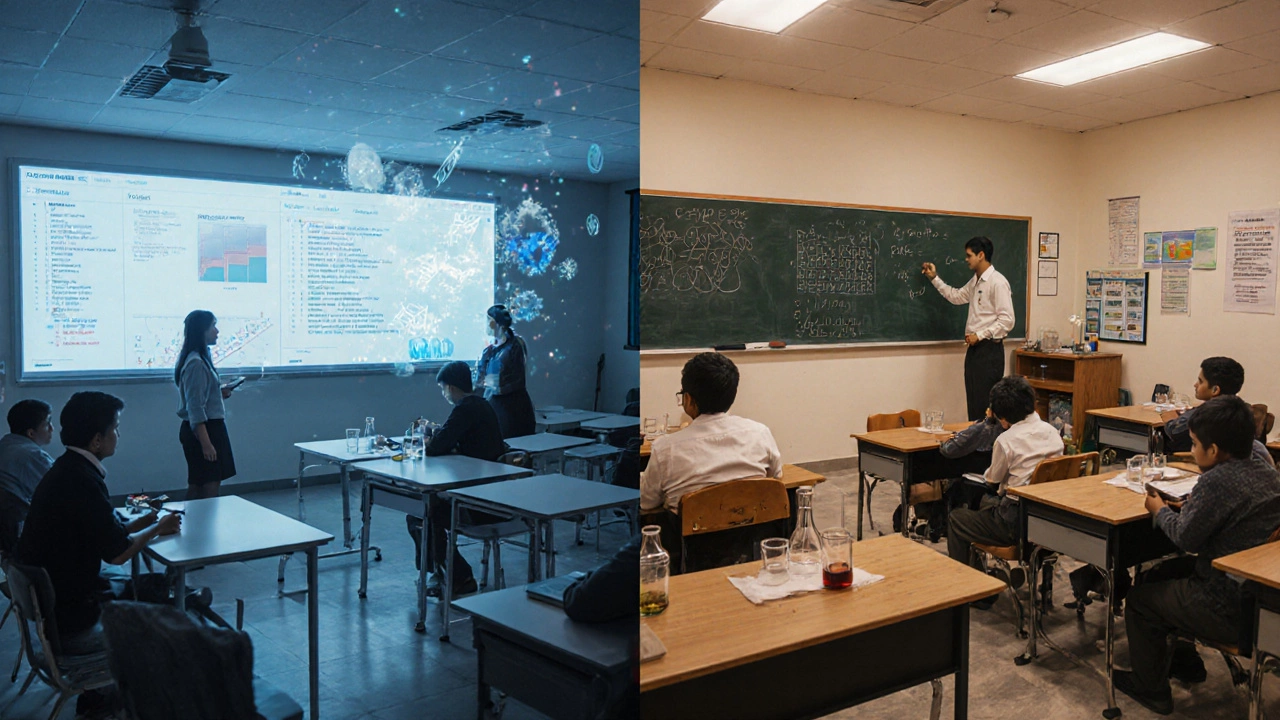
Curriculum & Standards: A Side‑by‑Side Look
| Aspect | Dubai (Private) | India (Public & Private) |
|---|---|---|
| Primary Language of Instruction | English (often Arabic as second language) | English (CBSE/ICSE) or regional language (state schools) |
| Core Curriculum | IB, British, American, CBSE/ICSE options | CBSE/ICSE dominant; some schools offer IB or Cambridge |
| Assessment Style | Combination of internal projects, external exams, continuous assessment | Heavy emphasis on board exams (Class 10, 12) and competitive tests |
| STEM Emphasis | Modern labs, robotics, coding integrated from early grades | Strong theoretical focus; practical labs vary widely |
| Teacher Qualification | Often required master’s degree + teaching credential | Varies: government teachers usually B.Ed.; private schools may demand higher degrees |
Teaching Quality and Outcomes
Dubai invests heavily in teacher training. Schools regularly partner with UK or US universities for professional development. As a result, many graduates score well in international benchmarks such as PISA (where available) and attain high TOEFL/IELTS results.
In India, the sheer scale creates a wide quality spectrum. Top‑tier private schools deliver results comparable to Dubai’s elite institutions, while many government schools lag behind due to high student‑teacher ratios (often 1:40 or more). However, India’s competitive exam culture (IIT JEE, NEET) pushes a deep mastery of math and science, producing a large pool of engineers and doctors.
Cost and Accessibility
Tuition is the most striking difference. A mid‑range Dubai private school charges around AED30,000(~USD8,150) per year, excluding transport and extracurricular fees. Premium IB schools can exceed AED70,000(~USD19,000). By contrast, Indian government schools are free, while private schools range from ₹15,000(~USD180) for basic CBSE institutions to ₹10lakhs(~USD12,000) for elite IB schools in metros.
Scholarships exist in both markets. The University of Dubai offers merit‑based aid for high‑performing students, while Indian institutions like the Indian Institutes of Technology (IIT) provide tuition waivers and stipends for top rankers.
International Recognition & Higher‑Education Pathways
Graduates from Dubai’s IB or British schools enjoy seamless admission to universities in the UK, US, Canada, and Australia. The curricula are globally recognized, and students often enter with advanced standing.
Indian board students-especially CBSE-are accepted worldwide, but they may need to sit for additional tests (SAT, ACT, IELTS) for Western universities. Indian students who complete IB locally have the same advantage as their Dubai peers.
Both systems produce professionals who succeed internationally; the difference lies in preparation style and the extra steps required for some university applications.
Pros & Cons for Different Student Types
- Expats seeking a multicultural environment: Dubai’s diverse student body and English‑medium instruction make the transition easier.
- Families on a tight budget: Indian public schools provide free basic education, though quality may vary.
- Students aiming for top engineering colleges in India: CBSE/ICSE preparation aligns closely with JEE and NEET exams.
- Students targeting Western universities: Dubai’s IB or A‑Level pathways reduce the need for extra entrance exams.
Decision Checklist - Is Dubai or India Right for You?
- What language proficiency does your child have? If English fluency is strong, Dubai’s schools fit well.
- What are your long‑term academic goals? For immediate entry into Indian engineering programs, CBSE may be optimal.
- How much can you invest annually? Compare AED30k‑70k versus ₹0‑10lakhs.
- Do you value international exposure? Dubai offers a multicultural campus and frequent global trips.
- Is proximity to family important? Indian schools keep children closer to extended relatives.
Answering these questions narrows the field and helps you pick a system that aligns with values, finances, and future plans.
Frequently Asked Questions
Is the Dubai curriculum harder than the Indian CBSE?
Hardness depends on the chosen program. IB and A‑Levels demand critical thinking and coursework, which many find more challenging than CBSE’s rote‑focused exams. However, CBSE’s depth in math and science can be equally demanding for engineering aspirants.
Can an Indian student transfer from a CBSE school in India to a Dubai IB school?
Yes, transfer is common. Students usually need to meet age criteria, provide previous transcripts, and pass an English proficiency check. Some schools may require a bridging semester to align curricula.
Are there scholarship options for Indian families in Dubai?
A few Dubai schools offer merit‑based scholarships for high‑achieving students, and some embassies provide education grants. Research each school’s policy early, as slots are limited.
Do Indian public schools provide any international certifications?
Generally no, but some state‑run schools have partnered with Cambridge International to offer IGCSE exams alongside the national board.
Which system better prepares students for tech careers?
Dubai’s schools often embed coding, robotics, and AI modules early, giving a practical edge. India’s strong theoretical foundation in mathematics also supports tech careers, especially when combined with private coaching or online courses.
Ultimately, there is no one‑size‑fits‑all answer. Dubai education offers modern facilities and international pathways, while India education system provides massive scale, deep STEM focus, and cost‑effective options. Weigh your priorities, explore a few schools in each market, and choose the environment where your child can thrive.
